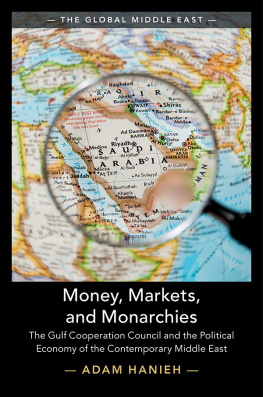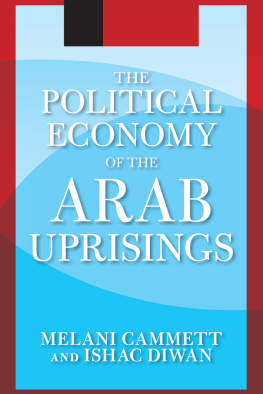Hazem Beblawi - The Arab Gulf Economy in a Turbulent Age (RLE Economy of Middle East)
Here you can read online Hazem Beblawi - The Arab Gulf Economy in a Turbulent Age (RLE Economy of Middle East) full text of the book (entire story) in english for free. Download pdf and epub, get meaning, cover and reviews about this ebook. year: 2018, publisher: Taylor & Francis, genre: Politics. Description of the work, (preface) as well as reviews are available. Best literature library LitArk.com created for fans of good reading and offers a wide selection of genres:
Romance novel
Science fiction
Adventure
Detective
Science
History
Home and family
Prose
Art
Politics
Computer
Non-fiction
Religion
Business
Children
Humor
Choose a favorite category and find really read worthwhile books. Enjoy immersion in the world of imagination, feel the emotions of the characters or learn something new for yourself, make an fascinating discovery.

- Book:The Arab Gulf Economy in a Turbulent Age (RLE Economy of Middle East)
- Author:
- Publisher:Taylor & Francis
- Genre:
- Year:2018
- Rating:3 / 5
- Favourites:Add to favourites
- Your mark:
- 60
- 1
- 2
- 3
- 4
- 5
The Arab Gulf Economy in a Turbulent Age (RLE Economy of Middle East): summary, description and annotation
We offer to read an annotation, description, summary or preface (depends on what the author of the book "The Arab Gulf Economy in a Turbulent Age (RLE Economy of Middle East)" wrote himself). If you haven't found the necessary information about the book — write in the comments, we will try to find it.
Hazem Beblawi: author's other books
Who wrote The Arab Gulf Economy in a Turbulent Age (RLE Economy of Middle East)? Find out the surname, the name of the author of the book and a list of all author's works by series.
The Arab Gulf Economy in a Turbulent Age (RLE Economy of Middle East) — read online for free the complete book (whole text) full work
Below is the text of the book, divided by pages. System saving the place of the last page read, allows you to conveniently read the book "The Arab Gulf Economy in a Turbulent Age (RLE Economy of Middle East)" online for free, without having to search again every time where you left off. Put a bookmark, and you can go to the page where you finished reading at any time.
Font size:
Interval:
Bookmark:

by Routledge
2 Park Square, Milton Park, Abingdon, Oxon, OX14 4RN
711 Third Avenue, New York, NY 10017
A catalogue record for this book is available from the British Library
ISBN: 978-1-138-81049-5 (Volume 2)
The publisher has gone to great lengths to ensure the quality of this reprint but points out that some imperfections in the original copies may be apparent.
The publisher has made every effort to trace copyright holders and would welcome correspondence from those they have been unable to trace.
Beckenham, Kent BR3 1AT
Croom Helm Australia Pty Ltd, 28 Kembla St,
Fyshwick, ACT 2609, Australia
The Arab Gulf economy in a turbulent age.
1. Persian Gulf States Economic conditions
I. Title
330.9536053HC415.3
St. Martins Press, Inc., 175 Fifth Avenue, New York, NY 10010
Printed in Great Britain
First published in the United States of America in 1984
The Arab gulf economy in a turbulent age.
1. Persian Gulf RegionEconomic conditions.
2. Persian Gulf RegionForeign economic relations.
3. Petroleum industry and tradePersian Gulf Region.
4. Economic history1971-I. Title.
HC415.3.B43 1984 330.953605383-40505
ISBN 0-312-04700-2
AN OVERVIEW
Font size:
Interval:
Bookmark:
Similar books «The Arab Gulf Economy in a Turbulent Age (RLE Economy of Middle East)»
Look at similar books to The Arab Gulf Economy in a Turbulent Age (RLE Economy of Middle East). We have selected literature similar in name and meaning in the hope of providing readers with more options to find new, interesting, not yet read works.
Discussion, reviews of the book The Arab Gulf Economy in a Turbulent Age (RLE Economy of Middle East) and just readers' own opinions. Leave your comments, write what you think about the work, its meaning or the main characters. Specify what exactly you liked and what you didn't like, and why you think so.


